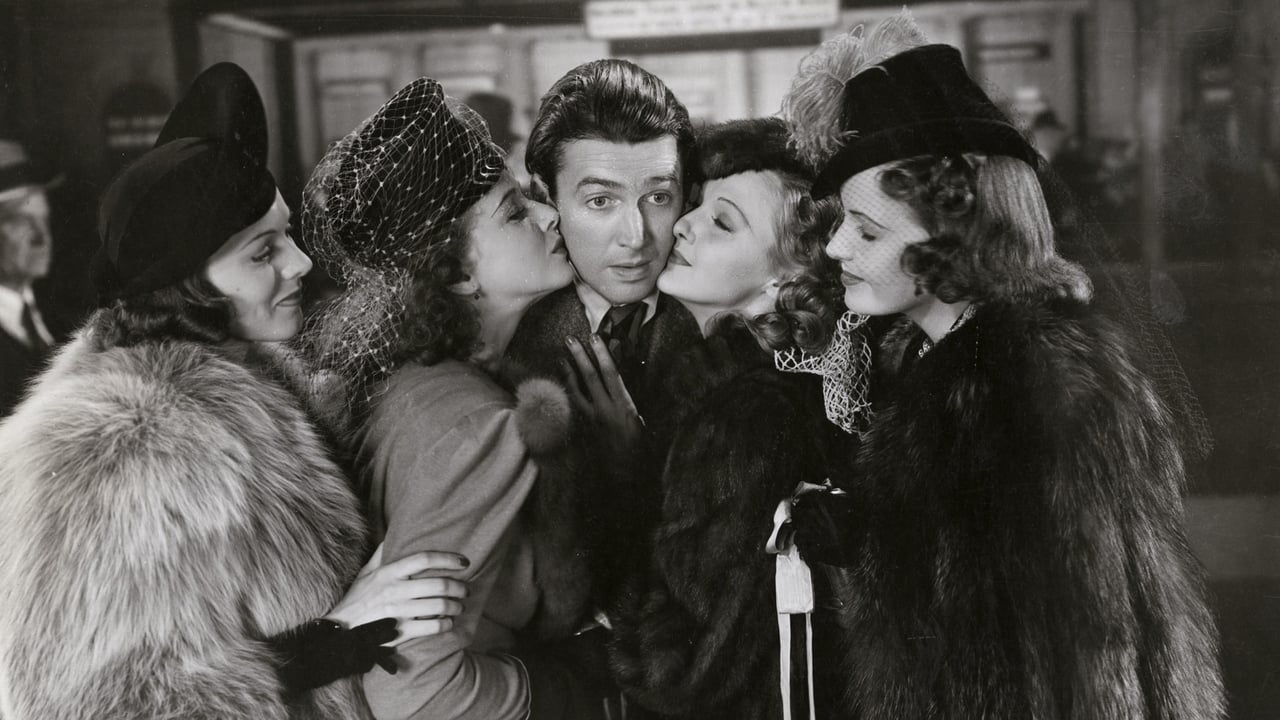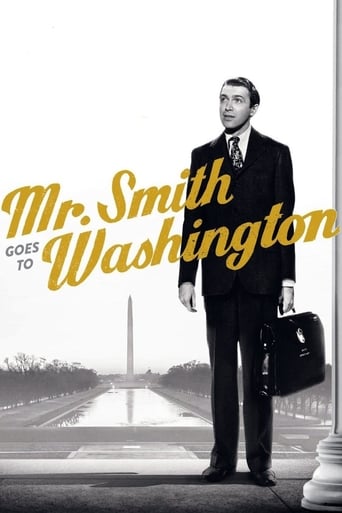

A naive man is appointed to fill a vacancy in the United States Senate. His plans promptly collide with political corruption, but he doesn't back down. Mr. Smith Goes to Washington showcases what you would should be expecting which is boring conversations, boring characters, boring acting and just a boring and bland movie in general. It's a film that doesn't have anything special about it and yet and i mean yet somehow got inside the Top 250 because it was made in a time when movies were like Space or like imagination never existed at all. (0/10)
... View MoreA senator suddenly dies and a replacement needs to be named. The other senator for the state, Joseph Paine (Claude Rains), along with Jim Taylor (Edward Arnold), his corrupt businessman backer, decide to name a truly surprising candidate, one Jefferson Smith (James Stewart). He's meant to be nothing more than a seat warmer so that Paine and Taylor can push through a new piece of legislation concerning a dam, meant to make them filthy rich. Unfortunately Mr. Smith is something they've rarely seen and are utterly incapable of understanding: a good and honest man. And a boy scout to boot.The film is corny and filled with pathos. Phrases like "the American dream", "truth and honesty", "reliability", and so many like those, get thrown around all the time. Politicians are nothing more than hungry jackal fat cats, aiming to filch the hard-earned pennies of the good American people. True way of life is to be found outside, on the prairies where grass leans on the wind. On the mountains reflected against the noon sun. I could feel my spleen turning red, white and blue as I watched this film.And yet, despite all that, the film is magnificent. Perhaps it's because 'It's a Wonderful Life', another film from director Frank Capra, also stars Stewart, but for some reason or other this film reminds me of Christmas. Because Christmas is also corny and filled with pathos. It is. But it's also the best time of the year. When it's okay to be a bit sentimental. Or a lot sentimental. When it's okay to remind ourselves of the values we all hold dear, but which we usually don't talk about because it's seen as embarrassing.Hopefully people still watch this film. Because even though it's old, and corny, and sentimental, and even a bit silly, it's values, themes and lessons are as relevant today as they were back then. Perhaps even more so.
... View MoreThrough a series of fortunate, and unfortunate, events, an unsophisticated local hero, Jefferson Smith, is appointed a US Senator. The people pulling the strings in his party and State figure that he will be compliant and malleable and basically stay out of the way of their plans, some of which aren't entirely ethical, or legal. However, a well-intentioned deed sets off a dramatic chain of events, a series of events that will see him at odds with his colleagues, with the shadowy, bullying powerbrokers and with the entire Senate.Brilliant movie from Frank Capra. While Capra also gave us such great movies as It's A Wonderful Life, Meet John Doe and It Happened One Night, this is his greatest work. A superb indictment of politics and how democracy has been undermined and corrupted, told with the trademark Capra brand of wholesomeness and practical idealism. Considering how politics has even further degenerated since 1939, even more relevant today than when it was released in 1939.Clever, engaging plot that doesn't waiver for a second. Not an ounce of deadwood in the movie - every scene is perfect and important. Some great twists and turns and some great tension towards the end as Smith struggles to preserve his name and ideals. Wonderful themes and morals too, as you would expect from Frank Capra.Add in some excellent performances, especially from James Stewart in the lead role and Jean Arthur as Ms Saunders. Both received Oscar nominations, as did Harry Carey for playing the President of the Senate.In all, Mr Smith Goes To Washington was nominated for 11 Oscars, including Best Picture, but won only one, for best original screenplay. Unfortunately for it, the 1940 Oscars belonged to a juggernaut known as Gone With The Wind...
... View MoreFrom time to time, a movie comes along that holds up so well that it actually gets BETTER with age. "Mr. Smith Goes To Washington" is EXACTLY that type of movie.For a basic plot summary, this movie tells the story of Jefferson Smith (Jimmy Stewart) a sort of "wide-eyed rube" who only gets promoted to U.S. Senator because of the political machine of Senator Joseph Payne (Claude Rains), whom the young Smith adores. Once in Washington, however, Smith gets a rude awakening as to the "real" politics of D.C. With the help of a female aide named Saunders (Jean Arthur), Smith must decide whether to fall in line or fight the deep- rooted corruption in the Capitol dome.This movie remains an all-time classic for two primary reasons:1. It strikes such a simple emotional chord in all of us. Even though, deep down, we know that corruption runs rampant in even the highest levels of government, we like to cling to the ideals that the nation was founded on. Well, that is exactly the journey that Stewart's Smith viscerally takes us on. We want him to succeed so badly because we all feel as if that is what WE would do in a similar situation.2. I know I'll probably get a few down-votes for this statement alone, but I believe that our government is as corrupt now as it has ever been. Thus, while watching Stewart's impassioned pleas for honesty and common sense, my heart ached for the United States of America. So, not only does "Mr. Smith" stand the test of time, but it actually transcends it.Basically, this movie does to politics what fellow Frank Capra film "It's A Wonderful Life" does to Christmas. If it were up to me, this movie would be shown in every American Government high school classroom and on television sometime the week before every major political election. It is THAT important in the message that it espouses.
... View More